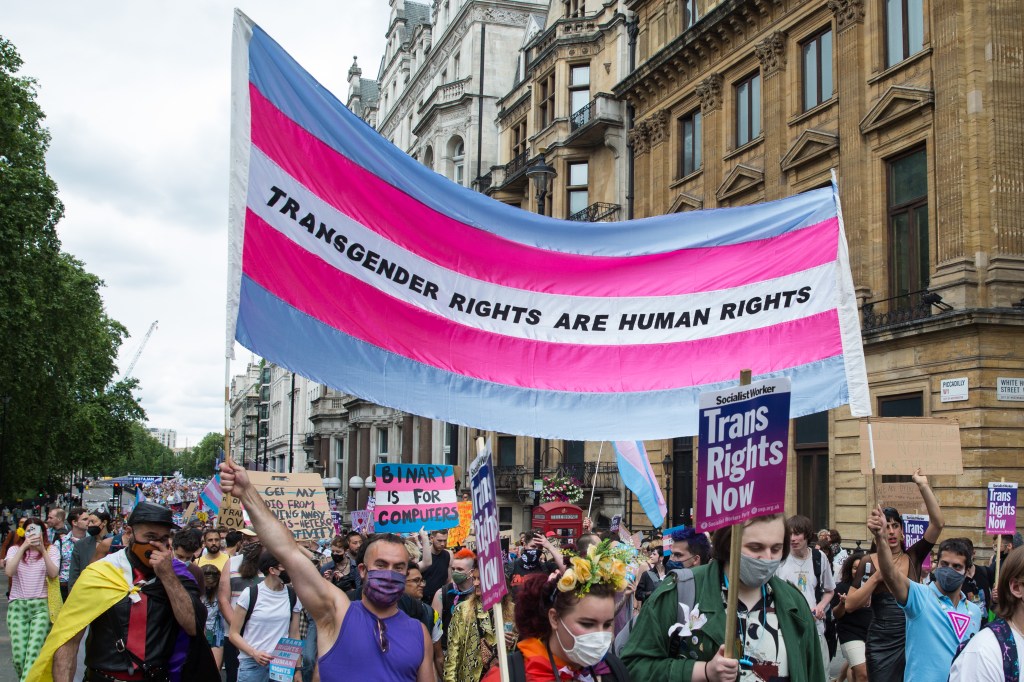Tory Approved List of Overseas GRCs Includes Countries Forcing Trans People to be Sterilised
Sign up for more LGBTQ+ news and updates at TrueQueer.
In a shocking revelation, it has come to light that several countries deemed by the UK government to have “equally rigorous” gender recognition laws enforce practices that violate the rights and autonomy of transgender individuals. These countries include nations where trans people are sterilized, required to undergo surgery, and even forced to gain their family’s permission before they can transition.
The UK government recently announced its plan to update the list of approved countries and territories from which trans migrants can apply for a British Gender Recognition Certificate (GRC) without having to provide medical documents. This decision was prompted by the introduction of self-identification in some countries, which the Tories no longer view as having “similarly rigorous systems as the UK.”
The list of countries set to be added to the approved list is alarming. It includes Belarus, Bosnia and Herzegovina, China, Cuba, Georgia, India, Iran, Kazakhstan, Mongolia, Montenegro, Namibia, Panama, Sri Lanka, and Taiwan. On the other hand, countries like New Zealand, Belgium, and the Netherlands, as well as US states such as California and Washington, have been removed from the list.
Research conducted on these countries reveals the archaic and oppressive legal requirements that trans people must fulfill in order to legally change their gender. These requirements do not align with the UK’s system, raising concerns about the government’s decision to include them in the approved list.
In Bosnia and Herzegovina, for example, trans people can only legally change their gender if they undergo a full medical transition. This means that medical transition is a precondition for the legal process. In contrast, the UK’s GRC application page states that individuals can apply without having had any gender-affirming surgeries or treatments or planning to have any in the future.
China also enforces strict requirements for legal gender change. While it is possible for trans people to change their names and gender markers on documents, they must undergo gender-affirming surgeries as a necessary precondition. Additionally, they must obtain approval from their families and the human resource offices of their workplace or educational institution. These requirements do not exist in the UK system.
Kazakhstan’s legal requirements for gender change are even more extreme. Trans people must undergo an arduous, humiliating, and expensive series of procedures, including extensive physical and psychiatric examinations, hormone therapy, sterilization, and gender reassignment genital surgery. These procedures are not only burdensome but also violate the rights and dignity of trans individuals. In contrast, British people applying for a GRC do not need to undergo such invasive procedures.
The testimonies of trans individuals who have gone through these procedures are deeply troubling. One Kazakh trans woman described feeling like an object for research and expressed concerns about the violation of personal boundaries during the process.
Moreover, Kazakhstan imposes additional restrictions on trans people with mental health conditions and those below the age of 21. They are barred from applying to legally change their gender, whereas in the UK, there is no such restriction for individuals with mental health issues, and applicants must be over 18 years old.
Iran also requires surgery for legal gender change. However, another disturbing aspect of the legal process in Iran is that adult trans Iranians must provide a certified testimonial from their parents stating their approval of their child undergoing gender-affirming surgery. This requirement does not exist in the UK system.
In Sri Lanka, applicants below the age of 21 also need parental approval to make amendments to the gender markers on their birth certificates. Legal gender recognition is only issued after the applicant receives a psychiatric diagnosis of “transsexualism” and undergoes hormone and surgical treatment. These requirements clearly violate the rights and autonomy of trans individuals.
Women and Equalities Minister Kemi Badenoch defended the government’s decision to update the list of approved countries during her speech in the House of Commons. She emphasized that the UK does not recognize self-identification for the purpose of obtaining a Gender Recognition Certificate and that individuals who do not satisfy the criteria for UK legal gender recognition should not be able to use overseas routes to obtain it.
However, critics argue that the government’s decision to include countries with oppressive and discriminatory practices raises serious concerns about the UK’s commitment to protecting the rights and dignity of trans individuals. They argue that the government should prioritize the safety and well-being of trans migrants by ensuring that they can access a GRC more easily than British nationals, rather than subjecting them to countries with harmful and regressive laws.
As this investigation reveals, the reality of gender recognition laws in approved countries is far from “rigorous” or respectful of trans individuals’ rights. It is crucial for the UK government to reconsider its decision and prioritize the protection and well-being of trans migrants.
Follow us on: Facebook for more LGBTQ+ news and updates at TrueQueer.
![]()

